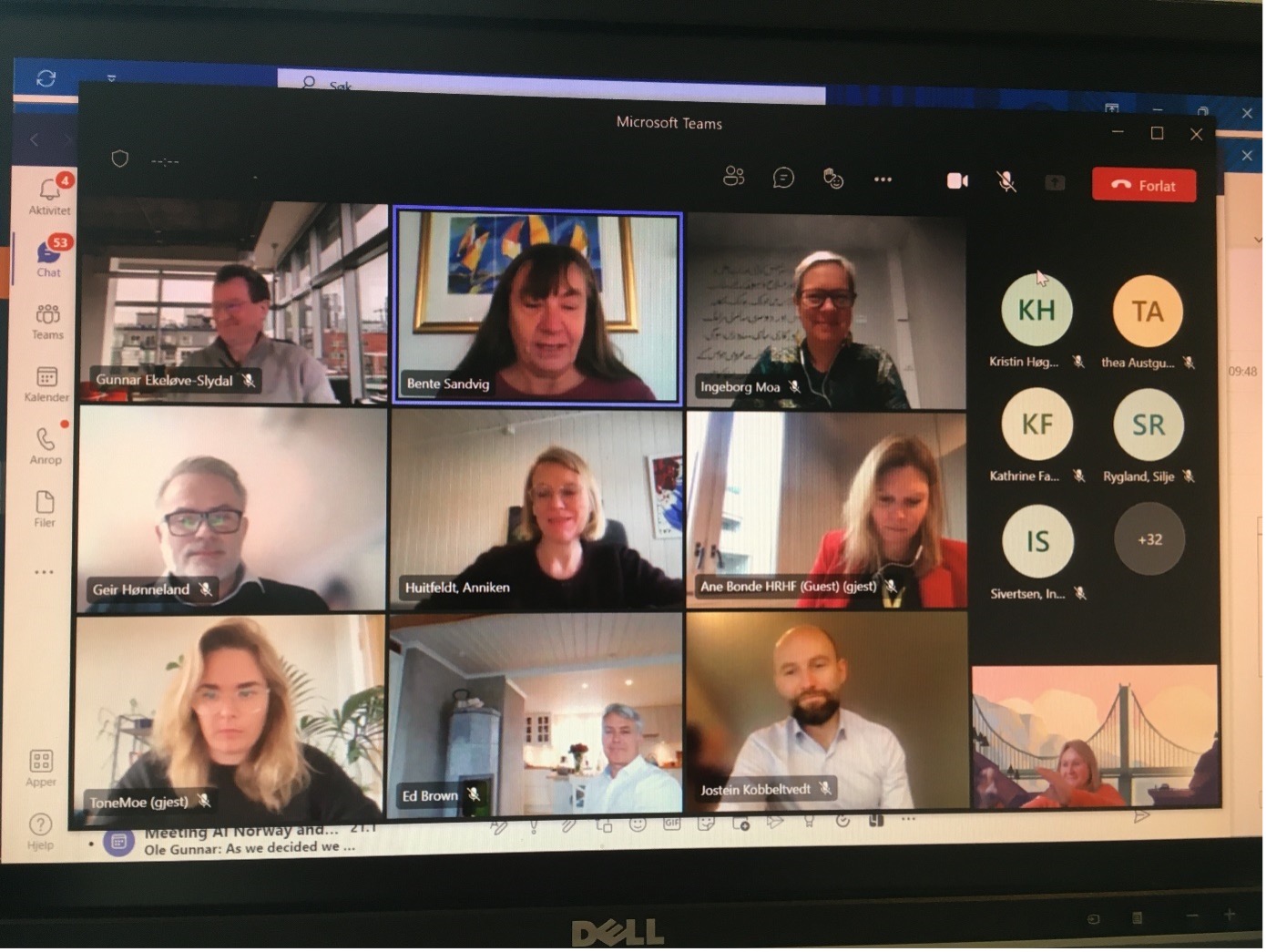By Gunnar M. Ekeløve-Slydal, Coordinator of the NGO-Forum and Deputy Secretary General of the Norwegian Helsinki Committee
They focused on Norway’s role in the UN and other international organizations, as well as on how the Ministry of Foreign Affairs can contribute to the implementation of two important new laws:
- The Transparency act on enterprises’ duty to conduct human rights due diligence and inform on how they address adverse impacts, and
- The Sanctions act, which authorizes the government to put in place targeted sanctions against human rights violators on certain conditions.
Several organizations underlined the need for a re-think of Norway’s human rights policies because of the ongoing undermining of democracy and human rights in many parts of the world. We challenged the Minister to draft a new report to the Parliament (Stortinget), to discuss these challenges and setting out policy goals and measures.
The last White Paper on human rights in Norway’s foreign policy was issued in December 2014, describing how Norway’s efforts to promote and protect human rights should be “mainstreamed into all aspects of its foreign policy and development cooperation”, and how Norway’s efforts should be “intensified at three levels: the global level, the regional level and at country level.”
In arguing for the need of such a re-think, the organizations pointed to the difficult struggle within the UN and other international organizations with a human rights mandate to hold governments accountable. The current membership of the UN Human Rights Council – which includes China, Cuba, Russia, Kazakhstan, Sudan, and Venezuela – illustrates that authoritarian governments are becoming increasingly influential in weakening the Council’s ability to promote human rights effectively.
During the meeting, Foreign Minister Huitfeldt underlined that Norway will continue to work to increase the respect for human rights in all international forums where it is present, including the UN Security Council where Norway holds a seat 2022-2023. She was not sure, however, of the need for a new government report to the Parliament. Rather she emphasised the need to find ways to better implement already established policies.
She underlined that Norway is eager to promote access and involvement of civil society organizations in discussions in international forums, giving high priority to consulting widely with human rights organizations, including women and LGBTI defenders.
Sometimes Norway is criticised for talking with abusive governments, such as during the recent visit to Norway by representatives of the Taliban government in Afghanistan. However, critics should note that by inviting the Taliban, Norway facilitated strong NGO-participation in the talks. Taliban representatives had to listen to demands regarding the respect of human rights, universal access to education and health care, the right to employment, free movement, and a mechanism for distributing aid directly to Afghan civilians.
Among other topics discussed at the meeting were:
- How to strengthen Nordic-Baltic cooperation in multilateral human rights forums? One of the ideas presented was to create a Nordic-Baltic NGO-Forum that can meet annually with foreign ministries from the countries, discuss priorities and develop recommendations.
- The importance of Norwegian support to a newly launched campaign for a strong and effective Council of Europe: https://cure-campaign.org/home
- The importance of the Ministry of Foreign Affairs consulting and cooperating with civil society on its draft resolutions on human rights defenders in the UN General Assembly and the Human Rights Council, as well as on other Norwegian initiatives where NGO input may be relevant.
- A proposed new dialogue model for effective interaction between Norwegian authorities and civil society organizations on follow-up to UN treaty body and UPR recommendations to Norway. The model has been developed in partnership between a large group of civil society organizations and networks, Norway’s National Institution for Human Rights, and the Equality and Anti-Discrimination Ombud. It includes a., criteria-based selection of recommendations for dialogue, and in-debt exchange (preferable) between a responsible Government Minister and a select group of competent human rights organizations.
